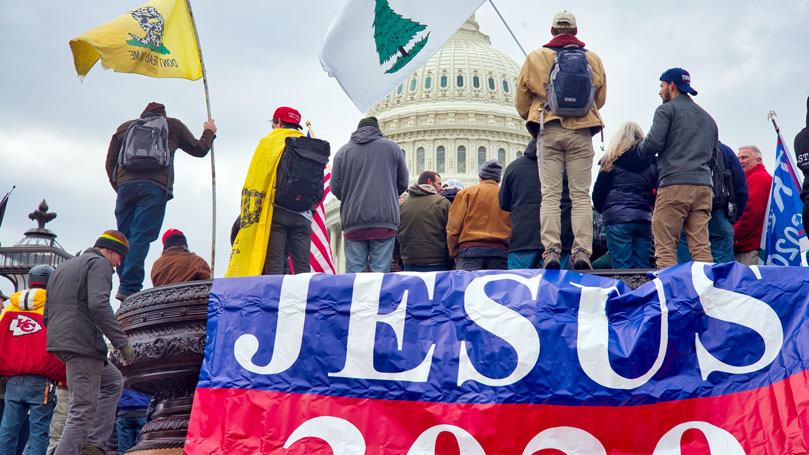The article discusses the historical context and evolution of populism in the U.S., particularly its ties to racism and social movements. It begins with a personal story reflecting on a historical populist strike involving Black coal miners and poor white farmers in Alabama around WWI, highlighting an early disdain for “big white folks.” The author explores the late 19th-century People’s Party, its inclusive ideals, and eventual fall due to segregation and Jim Crow laws.
The article connects past populist movements to contemporary right-wing populism, particularly the MAGA movement, emphasizing its roots in a backlash against civil rights and the preservation of white supremacy, especially through the opposition to abortion framed as a moral issue. The rise of the Christian right, originally mobilized to protect segregated schools, is also examined, alongside the growing influence of Christian nationalism, now increasingly intertwined with U.S. governance.
The author warns of a potential fascist danger emerging from the current political climate, illustrated by the anti-democratic tendencies of Trump and his agenda, largely propelled by Christian nationalists, white supremacy, and anti-government militias. The call for a united resistance against these movements is highlighted, suggesting the need for labor and other social forces to take a stand to counter MAGA’s influence. The piece concludes with a sense of cautious optimism for building a progressive majority, acknowledging the challenges ahead in the fight for a more equitable society.



